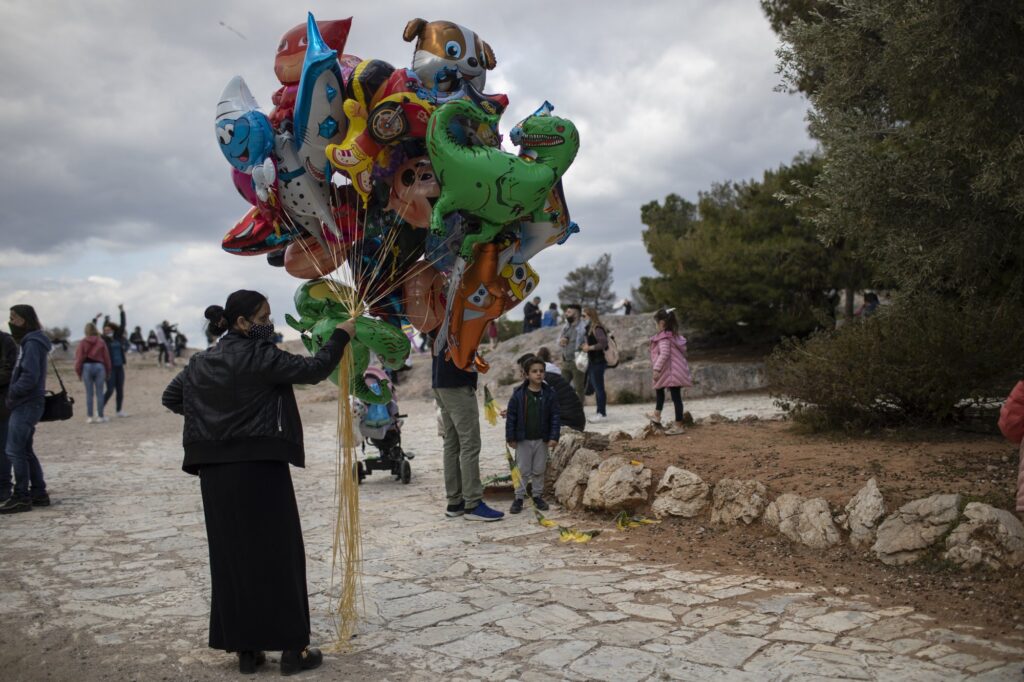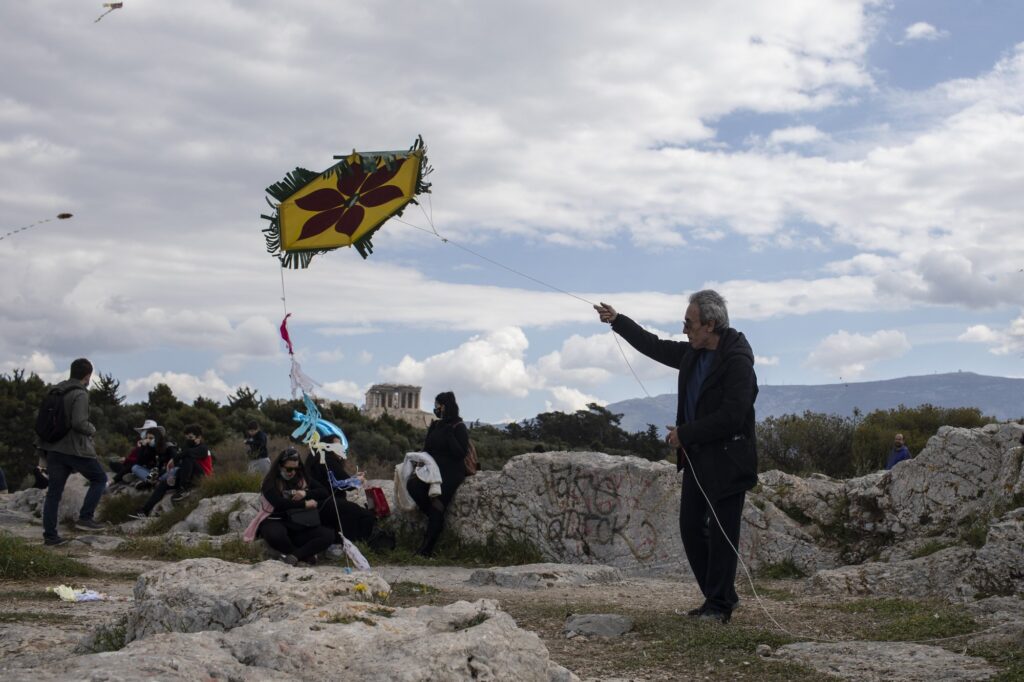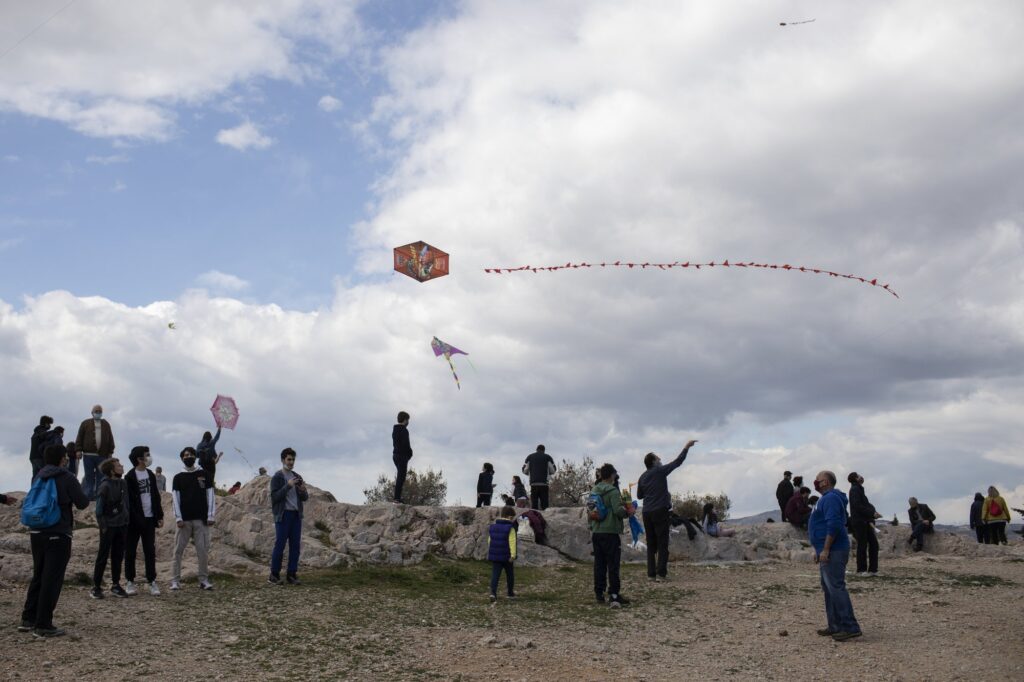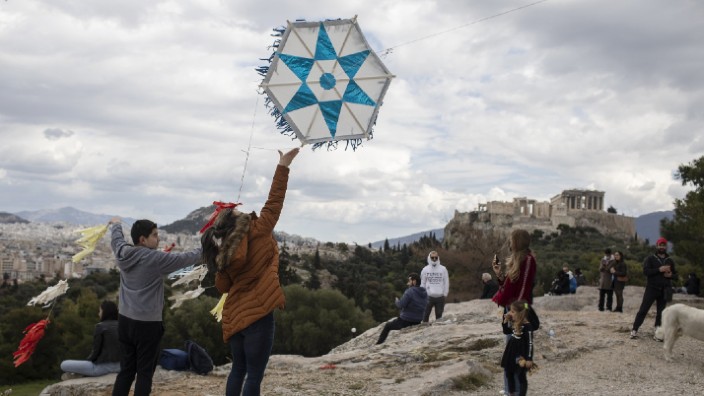Colorful kites danced in the skies above the hilltops and seafront promenades of Athens on Clean Monday, as Greeks turned out to celebrate the Eastern Christian holiday in their traditional fashion after being hit hard by the pandemic during the winter.
The country is still in lockdown, with most retail businesses shut and people allowed out of their homes only for essential purposes and generally within walking distance. But over the weekend, street vendors pulled out colorful displays of kites and on Monday, many families came out to fly them while wearing masks and minding social distancing guidelines.

“I’ve been flying kites for the last 40 years,” said Panagiotis Velopoulos, 65, who unfurled an octagonal kite on a hill across from the Acropolis and launched it on his first try into the sunny spring air. “There are not as many people as in previous years, but I feel very good today.”
Clean Monday marks the transition from Carnival to the beginning of Lent, a period of spiritual purification in preparation for the solemnity of Orthodox Easter, and kites have been an essential part of celebrations for more than a century in Greece.
READ MORE: Clean Monday: Five traditions you need to know.

Scholars have found evidence of Easter-season kite-flying in Europe as far back as the 17th century, likely symbolising raising one’s soul to God or Jesus’ resurrection. For many religious Greeks, it also signifies a desire to reach for the divine.
“I wake up every day and… cross myself and thank God for what we have, because unfortunately there are many fellow human beings who have nothing,” said Eleftheria Zissi, who was also flying a kite on the hill. “For everyone enduring the pandemic, this is making us all think about all the positive things in our lives.”

Many immigrants from countries with their own deeply rooted kite-flying traditions, such as Pakistan and Afghanistan, have enthusiastically joined locals in the Clean Monday custom.
For the families celebrating on Monday, it was also a moment of hopefulness after many public religious rituals were canceled or curtailed by the pandemic, which has killed more than 7,000 people in the country of about 11 million.
“After all that has happened, we have fresh air and joy around,” Zissi said. “It’s an optimistic message for the future.”
Source: AP News.

